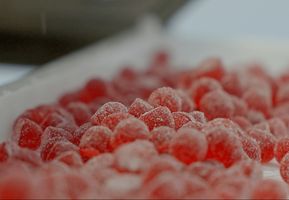Why Some People Don't Feel Edibles and What to Do About It
Edibles, like cannabis-infused gummies, brownies, or drinks, are a popular way to consume cannabis, offering a discreet and long-lasting experience. However, some people report that they "never feel" edibles, even after trying them multiple times. This can be frustrating, especially for those seeking the relaxation, creativity, or relief that cannabis can provide. If you’re wondering why edibles might not work for you or someone else, here are the key reasons and practical tips to address the issue.

Common Reasons Edibles May Not Work
1. Individual Metabolism Differences
Everyone’s body processes cannabis differently. Factors like metabolism speed, liver enzyme activity, and body weight can affect how edibles are absorbed. For example, people with faster metabolisms may break down THC too quickly, resulting in weaker or no effects. Others may have genetic variations in liver enzymes (like CYP2C9), which can slow or alter THC metabolism, making edibles less effective.
2. Low Dosage or Tolerance
New users might not feel edibles if the dose is too low. A standard dose is 5-10 mg of THC, but beginners sometimes start with less, which may not produce noticeable effects. On the other hand, frequent cannabis users may have a higher tolerance, requiring a larger dose to feel anything. If someone vapes or smokes regularly, a small edible dose might not cut it.
3. Improper Timing or Expectations
Edibles take time to work, often 1-2 hours, or longer if taken on a full stomach. Some people give up too soon, assuming the edible isn’t working, and may consume more, leading to unpredictable effects later. Others might expect the same immediate high as smoking, not realizing edibles produce a different, slower-onset experience.
4. Digestive Issues or Food Interactions
Since edibles are processed through the digestive system, anything that affects digestion can impact their effectiveness. Eating edibles on an empty stomach can speed up absorption, while a heavy meal (especially high-fat foods) can delay or dilute the effects. Certain medications or health conditions, like irritable bowel syndrome, may also interfere with how THC is absorbed.
5. Product Quality or Inaccuracy
Not all edibles are created equal. Some products, especially from unregulated sources, may have inconsistent THC levels or poor-quality cannabis. If the edible is mislabeled or contains less THC than advertised, you might not feel anything. Homemade edibles can also be tricky, as uneven distribution of THC can result in some pieces being weaker than others.
6. First-Time User Effect
For people new to cannabis, the body may need time to adjust to processing THC. Some report not feeling edibles the first time they try them, but notice effects with subsequent uses. This could be due to the endocannabinoid system needing initial exposure to respond fully.
Tips to Make Edibles More Effective
If you or someone else isn’t feeling edibles, try these strategies to improve the experience:
Start Low and Go Slow:
Begin with a 5-10 mg dose and wait at least 2 hours before considering more. Overdosing can lead to uncomfortable effects, so patience is key.
Eat a Light Meal:
Consuming edibles with a small, low-fat snack can help with absorption without delaying effects too much.
Check Product Quality:
Choose edibles from reputable, licensed dispensaries with clear lab-tested THC content. Avoid unregulated or homemade products if consistency is an issue.
Experiment with Timing:
Try edibles on an empty stomach or at different times of day to see what works best for your body.
Consider Tolerance Breaks:
If you use cannabis regularly, take a 1-2 week break to reset your tolerance, which can make edibles more effective.
Consult a Professional:
If edibles consistently don’t work, talk to a doctor or cannabis specialist. They can offer insights into whether metabolism, medications, or other factors are at play.
Try Different Formats:
If gummies don’t work, experiment with tinctures, capsules, or drinks, which may absorb differently in your system.
When to Seek Alternatives
If edibles still don’t produce effects after trying these tips, they might not be the best method for you. Smoking, vaping, or sublingual tinctures bypass the digestive system and may provide more immediate and predictable results. Each person’s body is unique, so finding the right consumption method can take some trial and error.
Final Thoughts
Not feeling edibles is more common than you might think, and it doesn’t mean cannabis won’t work for you. Factors like metabolism, dosage, timing, and product quality all play a role in how edibles affect you. By understanding how edibles work and experimenting with the right approach, you can increase your chances of a positive experience. Always consume responsibly, start with a low dose, and source products from trusted providers to ensure safety and effectiveness.
